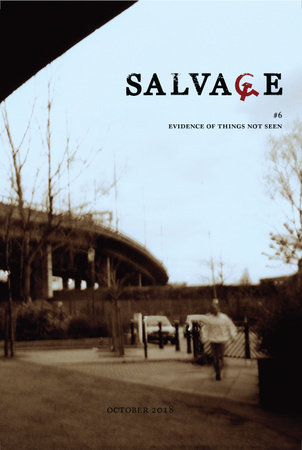Salvage #6: Evidence of Things Not Seen
by
multiple authors
(editors)
Salvage #6: Evidence of Things Not Seen
by
multiple authors
(editors)
Fanon's nuanced analysis of colonisation as spatial organisation is important to understanding our 'postcolonial' time. Colonial spatial organisation relies on everyday racism, which is thus both a lived ideology and an alienating spatial relation. Colonial violence and domination are inscribed into and mediated through the spatial organisation of colonisation, its compartmentalised socio-racial order. Fanon emphasised that the colonial spatial organisation and racialisation of life impose a double siege upon the colonised: one simultaneously spatial, and of their consciousness and existence. Never solely based on naked force, colonialism depended on the more complex and mediated form of moderating violence constituting the colonial subject, and imposing the present as definitive.
need to actually read Fanon tbh
Fanon's nuanced analysis of colonisation as spatial organisation is important to understanding our 'postcolonial' time. Colonial spatial organisation relies on everyday racism, which is thus both a lived ideology and an alienating spatial relation. Colonial violence and domination are inscribed into and mediated through the spatial organisation of colonisation, its compartmentalised socio-racial order. Fanon emphasised that the colonial spatial organisation and racialisation of life impose a double siege upon the colonised: one simultaneously spatial, and of their consciousness and existence. Never solely based on naked force, colonialism depended on the more complex and mediated form of moderating violence constituting the colonial subject, and imposing the present as definitive.
need to actually read Fanon tbh
We are living a 'long war' in which urban destruction is the dominant strategy. The 'long war' against terrorism and fundamentalist Islamism is fought as an urban war. If we take the equality of all human beings as our premise, then the attacks in Paris, Brussels and Nice are no more terrorising than is the systemic destruction of Palestine, Afghanistan, Iraq, Libya, Syria, and Yemen. But we do not have 'unity' marches for the terrorising destruction of urban life in these other geographies. [...]
thought i had: the point of analyses like these (forcing us to reckon with double standards etc) isn't to sermonise and make us feel guilty. it's to describe the totalising social order / ideological structures that MAKE us think this way, the better to change them
We are living a 'long war' in which urban destruction is the dominant strategy. The 'long war' against terrorism and fundamentalist Islamism is fought as an urban war. If we take the equality of all human beings as our premise, then the attacks in Paris, Brussels and Nice are no more terrorising than is the systemic destruction of Palestine, Afghanistan, Iraq, Libya, Syria, and Yemen. But we do not have 'unity' marches for the terrorising destruction of urban life in these other geographies. [...]
thought i had: the point of analyses like these (forcing us to reckon with double standards etc) isn't to sermonise and make us feel guilty. it's to describe the totalising social order / ideological structures that MAKE us think this way, the better to change them

